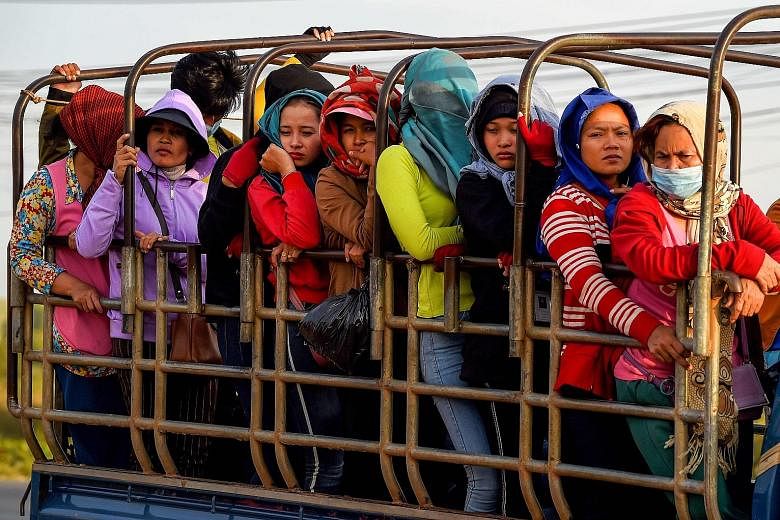Citing concerns over human rights, the European Union announced its decision to partially roll back Cambodia's duty-free trade privileges yesterday.
The withdrawal affects selected garment and footwear products, and all travel goods and sugar. That amounts to about €1 billion (S$1.5 billion) of Cambodia's annual exports to the EU.
European Commission vice-president Josep Borrell said in a press statement: "The duration, scale and impact of Cambodia's violations of the rights to political participation and to the freedoms of expression and association left the European Union with no other choice than to partially withdraw trade preferences...
"Today's decision reflects our strong commitment to the Cambodian people, their rights, and the country's sustainable development. For the trade preferences to be reinstated, the Cambodian authorities need to take the necessary measures."
High value-added garments and certain types of footwear will continue to have duty-free, quota-free access to the EU market, said the statement.
The withdrawal will come into effect on Aug 12 if there are no objections from the European Parliament and the European Council.
Under the EU's "Everything But Arms" (EBA) scheme, Cambodia's goods get duty-free access to markets within the bloc. This makes Cambodian textile exports to the EU up to 11 per cent cheaper. Footwear exports enjoy a price advantage of up to 17 per cent.
As a result, Cambodia's exports to the EU - of mostly shoes and clothing, but also rice and bicycles - made up 45 per cent of its total exports in 2018.
Last year, in response to a surge in rice imports, the EU imposed tariffs on Cambodian and Myanmar rice to protect its own producers.
Cambodia's textile industry indirectly supports some three million people and employs about 750,000 workers - mostly women and from the countryside.
Big job cuts from a drop in textile exports would send shock waves through rural Cambodia.
A report by the International Monetary Fund last December estimated that a full suspension of EBA privileges would cause Cambodia's total exports to drop 5 per cent, and Cambodia's gross domestic product to decline by 3 percentage points in the first year.
A full suspension would also permanently slash employment in the textile industry by 6 per cent, according to this estimate.
The EU, citing political repression, poor labour rights and land grabs, began proceedings to withdraw Cambodia's trade privileges last year.
In response, Cambodian Prime Minister Hun Sen swung between easing his crackdown on the opposition to accusing the EU of violating Cambodia's sovereignty.
"I do not exchange Cambodia's independence and sovereignty for any aid and preferences," he was quoted by Xinhua news agency as saying on Tuesday.
"We must not bow our heads to such pressure."
Mr Hun Sen was in Beijing last week for what he described as an effort to show solidarity with China in its attempt to contain the coronavirus epidemic.
Cambodian officials said Mr Hun Sen also managed to secure a promise from Chinese President Xi Jinping that China would continue to support Cambodia's economy in the event of an EBA withdrawal.

